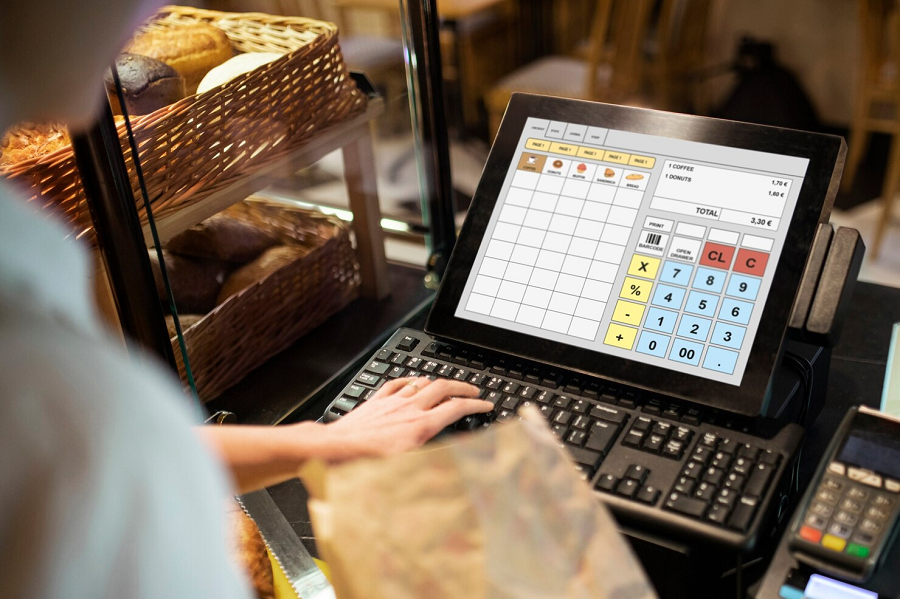Unleashing the Power of Point of Sale (POS) System Solutions for Retail Businesses in the Philippines

Understanding the Dynamics of Retail Business in the Philippines
In the vibrant landscape of retail business in the Philippines, entrepreneurs face a myriad of challenges, from fierce competition to ever-changing consumer preferences. The market demands agility, efficiency, and customer-centric approaches to stay ahead. Technology has emerged as a game-changer, offering innovative solutions to address these challenges head-on. Among these solutions, Point of Sale (POS) systems stand out as indispensable tools for modern retailers. These systems revolutionize the way transactions are processed, inventory is managed, and customer relationships are nurtured.
Exploring the Significance of Point of Sale (POS) Systems
Point of Sale (POS) systems serve as the nerve center of retail operations, facilitating seamless transactions and empowering businesses to deliver exceptional customer experiences. Gone are the days of manual cash registers and handwritten receipts; today’s POS systems are sophisticated platforms equipped with advanced features and functionalities. From sales processing to inventory management, these systems streamline every aspect of retail operations, enabling businesses to operate more efficiently and profitably. In the dynamic retail landscape of the Philippines, where competition is fierce and customer expectations are high, investing in a robust POS system is no longer a luxury but a necessity.
Key Features and Functionalities of Point of Sale (POS) System Solutions
Sales Processing: With a Point of Sale (POS) system, retailers can process transactions swiftly and accurately, reducing waiting times and improving customer satisfaction.
Product Catalog Management: These systems allow retailers to maintain a centralized product catalog, making it easy to update prices, descriptions, and stock levels in real-time.
Barcode Scanning and Printing: Barcode scanning capabilities streamline the checkout process, while barcode printing facilitates efficient inventory management.
Customer Management: POS systems enable retailers to capture and store customer information, track purchase history, and offer personalized experiences.
Promotions and Discounts: Retailers can create and manage various promotions, discounts, and loyalty programs, driving sales and fostering customer loyalty.
Benefits of Implementing Point of Sale (POS) Systems in Retail Businesses
Implementing a Point of Sale (POS) system offers a multitude of benefits for retail businesses in the Philippines. Firstly, it improves efficiency and accuracy in transactions, reducing errors and saving valuable time. Secondly, it enhances the overall customer experience by providing faster checkout processes and personalized service. Thirdly, it enables better inventory management, helping businesses to optimize stock levels and reduce shrinkage. Additionally, POS systems provide valuable insights into sales trends and customer behavior, empowering retailers to make data-driven decisions. Overall, investing in a POS system is a strategic move for retail businesses seeking to thrive in the competitive Philippine market.
Factors to Consider When Choosing a Point of Sale (POS) System Solution
When selecting a Point of Sale (POS) system solution, retailers in the Philippines must consider several factors to ensure they find the right fit for their business. Scalability and flexibility are essential, as the system should be able to grow with the business and adapt to changing needs. Integration capabilities are also crucial, as the POS system should seamlessly integrate with other business tools such as accounting software and e-commerce platforms. User-friendliness and training support are vital for ensuring smooth implementation and adoption by staff. Security measures and compliance standards should not be overlooked, especially considering the sensitivity of customer data. Lastly, cost-effectiveness and return on investment (ROI) should be carefully evaluated to ensure that the chosen POS system delivers value over the long term.
Top Point of Sale (POS) System Solutions Available for Retail Businesses in the Philippines
In the dynamic retail landscape of the Philippines, several Point of Sale (POS) system solutions cater to the diverse needs of businesses. Vendor A offers a comprehensive POS solution with advanced features such as mobile POS capabilities and robust reporting tools. Vendor B specializes in cloud-based POS systems, providing scalability and flexibility for growing businesses. Vendor C stands out for its user-friendly interface and excellent customer support, making it an ideal choice for retailers seeking ease of use and reliability.
Implementation Strategies for Successful POS System Adoption
Implementing a Point of Sale (POS) system requires careful planning and execution to ensure a smooth transition and maximize the benefits for the business. During the planning and preparation phase, retailers should assess their needs, define objectives, and select the right POS system solution. Training and onboarding procedures are essential to familiarize staff with the new system and ensure seamless integration into daily operations. Monitoring and evaluation mechanisms should be put in place to track performance, gather feedback, and make adjustments as needed to optimize the use of the POS system.
Future Trends and Innovations in Point of Sale (POS) System Solutions
Looking ahead, the future of Point of Sale (POS) system solutions holds exciting possibilities for retail businesses in the Philippines. Integration of artificial intelligence and machine learning technologies promises to revolutionize customer engagement and personalization. Cloud-based POS systems will continue to gain traction, offering scalability, flexibility, and accessibility for businesses of all sizes. Emphasis on omnichannel retailing experiences will drive innovation in POS systems, enabling seamless integration across online and offline channels to deliver cohesive and immersive shopping experiences for consumers.





